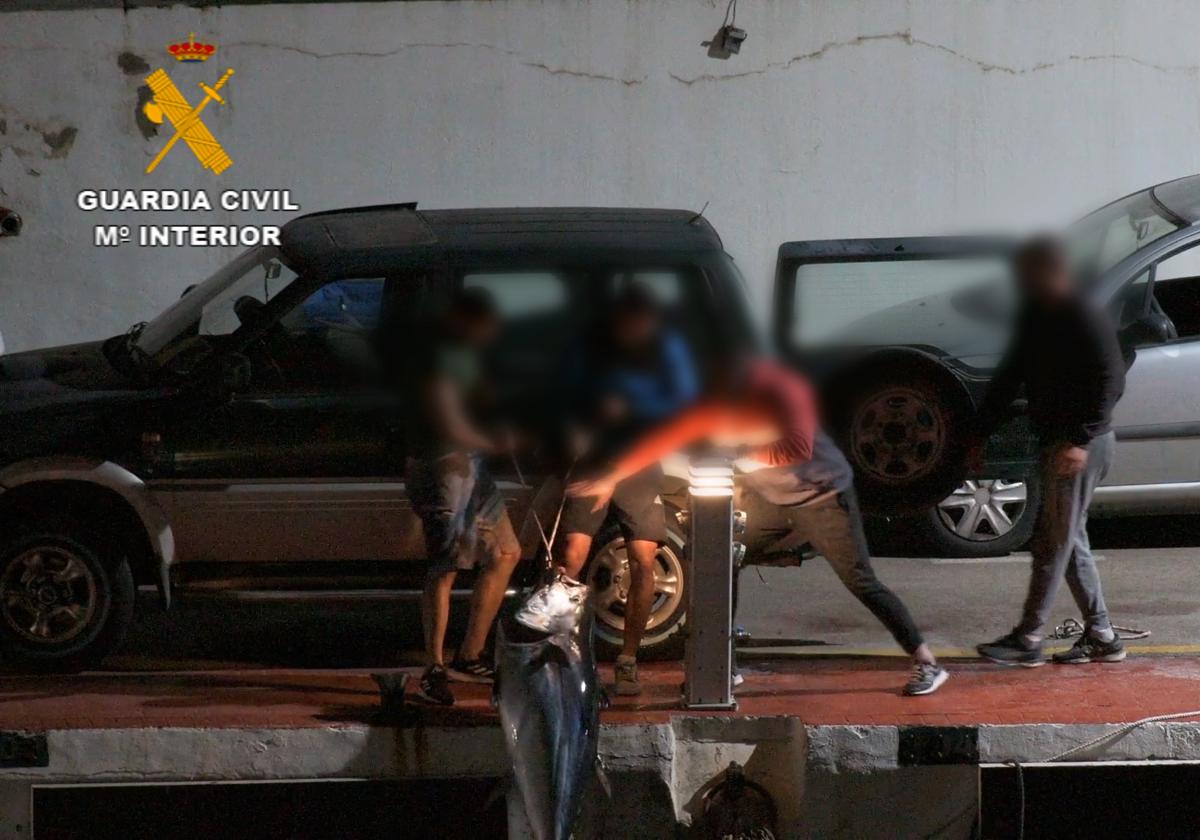

Sections
Highlight

They fished during the day, but took the catch off the boat at night to avoid prying eyes. From there the tuna haul allegedly passed through the hands of a wholesaler and ended up on the plates of restaurants and beach bars in Marbella. This was the way in which a bluefin tuna-poaching scheme started up, eventually turning into a commercial operation.
After months of surveillance, the Guardia Civil's specialist nature and environment protection unit (Seprona) has dismantled this group. There are eight people under investigation, including three National Police officers stationed in Marbella, who were allegedly the ones fishing for tuna, despite the fact that it was closed season.
Seprona's investigations place these officers at the top of the pyramid of the criminal group with the brother of one of them and a trainee officer from the same police force just behind them. It would appear that they have been operating for at least three years, so it is difficult to estimate the number of fish caught and sold by them in that time.
However, during the specific period of the investigation christened Operation Galete, the poaching of 16 bluefin tuna was detected, with their approximate weights ranging from 70 kilos to more than 200 kilos apiece.
According to Seprona, the individuals involved operated in the waters close to Malaga city, subsequently introducing the tuna catches on to the market with fraudulent documentation to go via a wholesale fish and frozen fish company in Malaga and also through direct sales to various restaurants located in the municipality of Marbella.
Crews from local fishing boats and other professionals from the fishing sector informed the Guardia Civil that several well-organised individuals were continuously poaching fish, which is expressly prohibited outside the permitted season.
The Guardia Civil warns that this type of practice puts the health of the consumers of these fish at risk as "they lacked any type of sanitary control".
The investigation has also revealed the very poor sanitary conditions of the vehicles used for their transport and the "poor hygienic and sanitary conditions" of some of the tuna. In fact, the health authorities certified the "serious and imminent risk to public health" as they could cause serious food poisoning.
The restaurants and beach bars that purchased them were supposedly aware of the illegal origin of the tuna, but took advantage of the money-making opportunity and 'laundered' these specimens by falsifying the information as to their origin, bringing them great economic benefits, according to the Seprona investigation.
As part of Operation Galete two recreational boats allegedly used by the group of officers for fishing have been seized. According to ABC newspaper, when they were identified by Seprona, two of them said: "We are National Police, what a mess you are going to get us into."
Also seized were two vehicles, five professional rods with their respective specific reels for catching tuna, two probes, two bait boats, bait, hooks and fishing line, among other tools that have been placed at the disposal of the judicial authorities.
Publicidad
Publicidad
Publicidad
Publicidad
Esta funcionalidad es exclusiva para suscriptores.
Reporta un error en esta noticia
Comentar es una ventaja exclusiva para registrados
¿Ya eres registrado?
Inicia sesiónNecesitas ser suscriptor para poder votar.